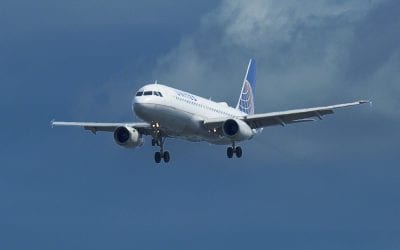A recent study of rental car prices and taxation concluded that taxes on travelers manage to hit local residents harder than expected. Though, once upon a time, rental cars were focused on airports and served predominately visitors, now almost 50 percent of car rentals serve locals and end up taxing the lower income residents who do not own cars. That’s not what legislators had in mind when they slapped taxes on “visitors.”
This following content comes from internal working papers that were shared with me by the National Consumers League. They outline a real problem. But, what can be done about it? There’s the rub. Most of the taxes are local and having the federal government limit state taxation doesn’t sit well. Plus, having the states limit local city taxation is also a political no-no.
All that being said, taxes on car rental consumers have proliferated over the past 20 years. State legislatures and local governments have enacted these taxes often due to a mistaken belief that the majority of car rental customers are businesses or well-to-do visitors from out-of-town.
Governments in 43 states and the District of Columbia have imposed 118 different excise taxes on car rentals in various jurisdictions — representing more than an eight-fold increase in the number of such taxes since 1990. Additional excise tax proposals are currently pending across the country.
These state and local taxes are separate from, and in addition to, the airport fees that are imposed on rental car companies for various services provided by the airport authority. Airport fees must be spent for airports and supporting efforts. State and local taxes, however, can be used as governments see fit; hence, their popularity.
Lawmakers and proponents often refer to these car rental taxes as “tourist taxes.” The theory is that they cause no pain to local constituents. That is a mistaken premise.
According to the most recent data, since 2006, more than half of all car rentals take place in the local market — and this trend continues as Americans are choosing with increasing frequency to rent to otherwise supplement their transportation needs. Moreover, many renters cannot afford to own a car and rent only when they need to take a relative to a doctor’s appointment, visit family or head out of town on weekends. And car sharing, ridesharing, vanpooling, and other forms of virtual car ownership are becoming increasingly popular in urban areas and on college campuses.
As a result, local renters wind up being asked to shoulder the tax burden for boondoggle projects from which they often derive no benefit. For example, sports stadiums are often funded with these taxes. And yet, those who rent cars many times can’t afford to attend games at the very venues their taxes subsidize.
The Brattle Group of Cambridge, Massachusetts, examined local rentals (excluding airport rentals) that were paid directly by the renter (rentals in a consumer’s home town that were not reimbursed by an insurance company or employer). They found that taxes fall disproportionately upon racial minorities and substantially upon low-income renters. According to the study:
• Black neighborhoods generate over four times as many customer-paid rental transactions as their white counterparts. And nonwhites are approximately 75 percent more likely to rent than whites.
• In 2008, African Americans made up 12 percent of the US population, but accounted for 27 percent of overall retail rental car demand in rentals that were not reimbursed by a third party.
• In absolute terms, in 2008, African Americans paid over 13 million dollars in these car rental tax payments, while members of other minority groups paid another seven and a half million dollars during that same period.
• Twelve percent of all taxes on retail transactions were paid by members of households earning under $35,000 per year.
• Eighteen percent were paid by members of households earning under $50,000 per year.
The following tables detail construction and/or maintenance activity for professional sports facilities that have been funded, in part, by car rental taxes.

Charlie Leocha is the President of Travelers United. He has been working in Washington, DC, for the past 14 years with Congress, the Department of Transportation, and industry stakeholders on travel issues. He was the first consumer representative to the Advisory Committee for Aviation Consumer Protections appointed by the Secretary of Transportation from 2012 through 2018.






